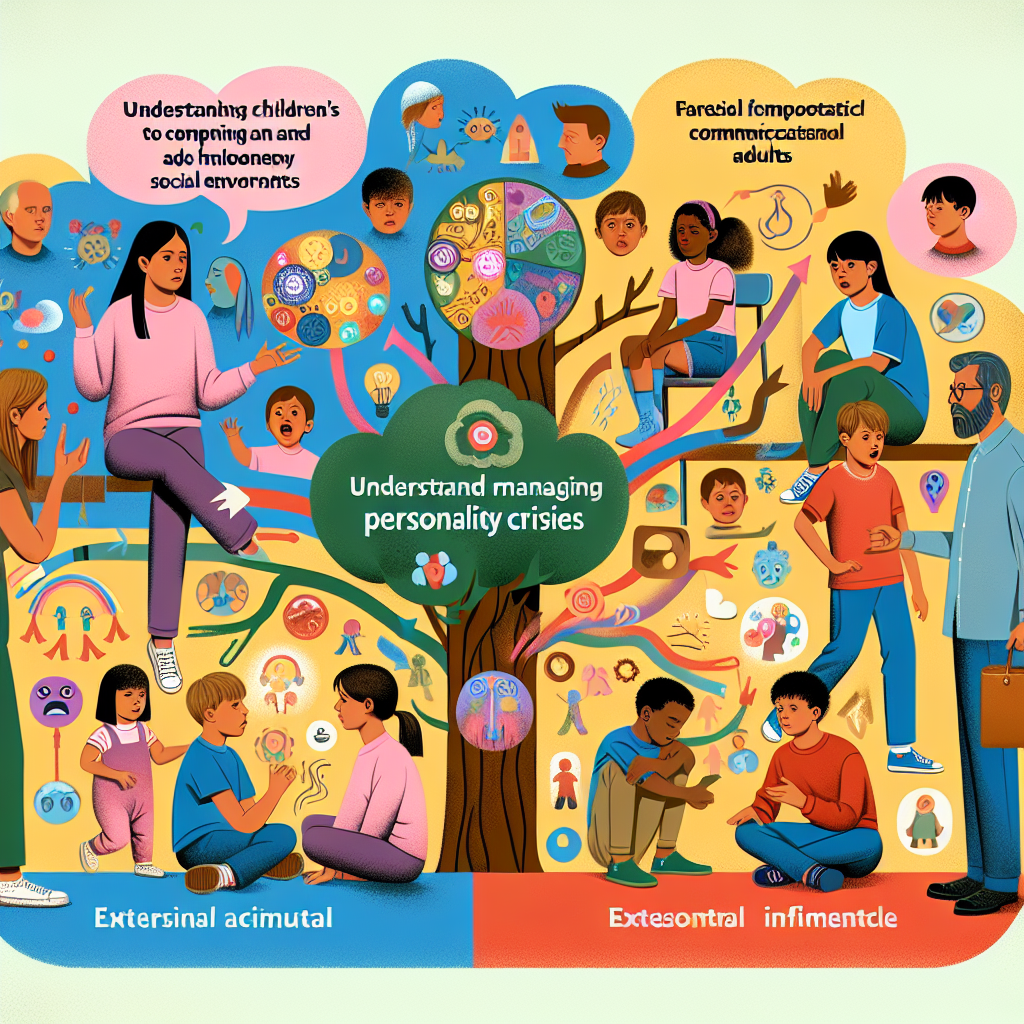Personality Disorders in Children: Understanding and Management
Raising a child is a journey full of joys, but also challenges. On the way to adulthood, the child will go through different stages of development, often signaled by personality crises. These times can be stressful for both the little one and the parents. In this article, we will explore how parents can successfully understand and manage these critical moments.
Identification of Children's Personality Crises
Personality crises in children can take many forms, from uncontrollable bouts of crying to rebellious behavior or social withdrawal. It is essential to recognize the signs of a possible crisis in order to intervene as quickly and effectively as possible.
First Symptoms and Warning Signs Most commonly, parents may notice sudden changes in the child's behavior, a drop in school performance, or difficulties in relationships with peers and family. It is important not to ignore these signals and seek to understand their cause.
Understanding Causes
Common Stress Factors The causes of personality crises can range from hormonal changes, to school or family problems. Periods of transition, such as starting school or adolescence, can also trigger such crises.
Influence of the Environment The environment in which the child grows up, the atmosphere at home and the relationships with those close to them can have a significant impact on his personality. It is important to provide a safe and stable environment where the child feels understood and supported.
Crisis Management Strategies
Effective Communication Communication is key in managing any personality crisis. Listen with empathy and patience, respond calmly and clearly, and encourage the child to express his or her own thoughts and feelings.
Emotional Regulation Techniques Learning emotion management techniques, such as deep breathing, exercise, or relaxation techniques, can help your child get through difficult times more easily.
The Importance of Parental Support
Presence and Patience The constant presence and patience of parents in understanding and managing crises is essential. Remember that every child is unique, so a personalized plan of action is needed.
Creating a Personalized Plan Developing a personalized plan that emphasizes the child's strengths and provides support for areas of vulnerability is crucial to effective personality crisis management.
The role of professionals
Consultation of Specialists In certain situations, it may be necessary to seek the help of specialists. A child psychologist or school counselor can provide valuable insight and professional intervention strategies.
Therapeutic Interventions Behavioral and cognitive therapies can provide useful tools for coping and solving the inner problems that can trigger personality crises.
Prevention of Personality Crises
Continuing Parental Education Parenting never stops. Attending workshops, reading specialized books, or joining parenting support groups can provide valuable information and new techniques for managing your child's behavior.
Mental Health Promotion Promoting mental health from childhood is essential. Encourage children to talk about their feelings and be aware of the importance of mental health as well as physical health.
Conclusion
We conclude this guide by reinforcing how important it is to understand and manage personality crises in children. Recognizing the warning signs, using effective communication and emotional regulation techniques, and consulting specialists when necessary can go a long way toward solving these challenges.
It is important to remember that every child is different and that approaches must be tailored to their individual needs. Through patience, love, and constant support, we can help children overcome these personality crises and grow up healthy both mentally and emotionally.
If you feel the need for more resources or support, we invite you to visit our special section of the store or subscribe to our newsletter for tips and informative articles. together, we can ensure the best possible upbringing for our children.














































































































































